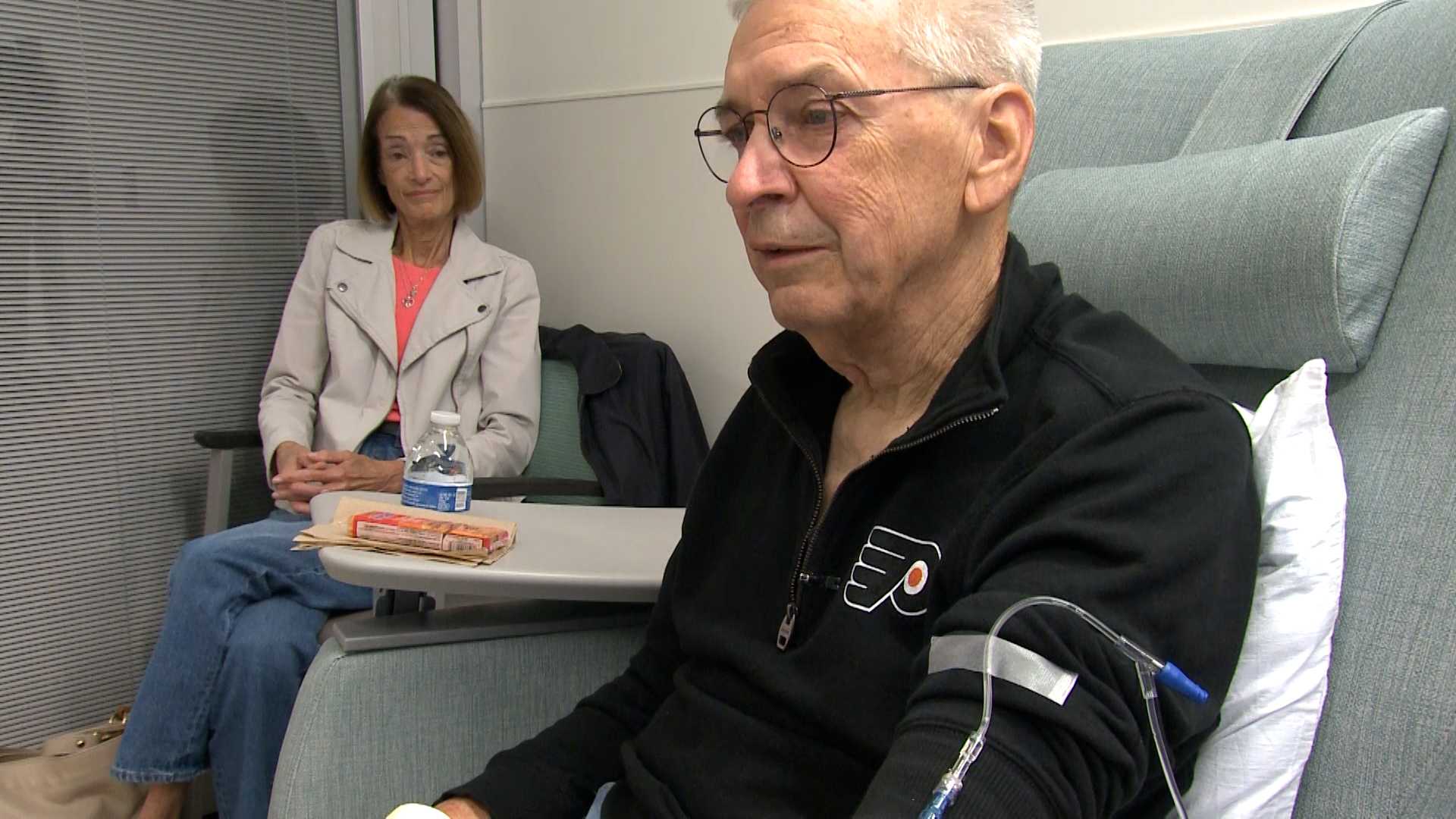Health
New Alzheimer’s Treatments Offer Renewed Hope for Patients

The recent approval of two new drugs, Leqembi and Kisunla, by the FDA has sparked optimism among families affected by Alzheimer’s disease and mild cognitive impairment (MCI). Terry Becker, a retired fifth-grade teacher from Lancaster County, Pennsylvania, reports feeling positive effects from Kisunla, which he began receiving as part of a new treatment regimen.
Terry’s wife, Pam, first noticed changes in his memory months prior, prompting a neurological assessment that confirmed his diagnosis of MCI. While the precise causes of MCI and Alzheimer’s remain elusive, medical professionals are focusing on the accumulation of amyloid proteins in the brain as a critical factor in disease progression.
Hope Through Innovative Treatments
Dr. Matt Beelen, the medical director of the Alzheimer’s and Memory Care Program at Penn Medicine Lancaster General Health, expressed enthusiasm about the potential of these new treatments. “When these drugs became available, we were very excited. Now we have something that could potentially stop this process or greatly impact it,” he stated. Many families, including Terry and Pam, share this renewed sense of hope.
“It changed the course for us and for our family,” said Pam Becker, emphasizing the significance of the treatment in their lives. Dr. Beelen added that the drugs help reduce amyloid proteins, leading to improved memory stabilization for patients.
Terry himself commented on the impact of the treatment, saying, “I do feel like I have a lot more good days than bad days, which is great.” His positive outlook reflects the changing dynamics in how patients and families approach memory-related diseases.
Comprehensive Care and Community Impact
Dr. Jesse Main, a clinical neuropsychologist working with Terry, noted that Penn Medicine Lancaster General Health is the only regional health system providing comprehensive treatment options for Alzheimer’s patients. This includes initial assessments, drug infusion, data collection, and ongoing monitoring. “This is a really important space for our team where we share results and discuss future steps,” Dr. Main explained.
The facility has seen a surge in interest for these treatments. When Terry started his monthly infusions, he was among approximately 1,000 patients across the nation. Since then, Penn Medicine has welcomed an additional 50 patients into its program, highlighting the growing demand for innovative Alzheimer’s therapies.
Looking ahead, Penn Medicine plans to partner with Willow Valley to further expand treatment options, potentially establishing Lancaster County as a research hub for Alzheimer’s and related conditions. This initiative aims to enhance access to comprehensive care for patients in the region.
As Terry progresses through his treatment, he remains focused on family, cherishing moments with his four granddaughters. “I feel pretty normal, yeah. So that’s what I would tell her. I think I’m feeling pretty normal today,” he said. Pam concluded, “We’re continuing to do all that we can to have a brighter future and a longer future.”
Terry is currently on his sixth of twelve planned infusions, with one treatment scheduled each month. In the spring, he will undergo a repeat PET scan of his brain to assess the progress of the treatment in breaking down amyloid protein plaques.
-

 Technology4 months ago
Technology4 months agoDiscover the Top 10 Calorie Counting Apps of 2025
-

 Health2 months ago
Health2 months agoBella Hadid Shares Health Update After Treatment for Lyme Disease
-

 Health3 months ago
Health3 months agoErin Bates Shares Recovery Update Following Sepsis Complications
-

 Technology3 weeks ago
Technology3 weeks agoDiscover 2025’s Top GPUs for Exceptional 4K Gaming Performance
-

 Technology2 months ago
Technology2 months agoElectric Moto Influencer Surronster Arrested in Tijuana
-

 Technology4 months ago
Technology4 months agoDiscover How to Reverse Image Search Using ChatGPT Effortlessly
-

 Technology4 months ago
Technology4 months agoMeta Initiates $60B AI Data Center Expansion, Starting in Ohio
-

 Technology4 months ago
Technology4 months agoRecovering a Suspended TikTok Account: A Step-by-Step Guide
-

 Health4 months ago
Health4 months agoTested: Rab Firewall Mountain Jacket Survives Harsh Conditions
-

 Lifestyle4 months ago
Lifestyle4 months agoBelton Family Reunites After Daughter Survives Hill Country Floods
-

 Technology3 months ago
Technology3 months agoUncovering the Top Five Most Challenging Motorcycles to Ride
-

 Technology4 weeks ago
Technology4 weeks agoDiscover the Best Wireless Earbuds for Every Lifestyle





















